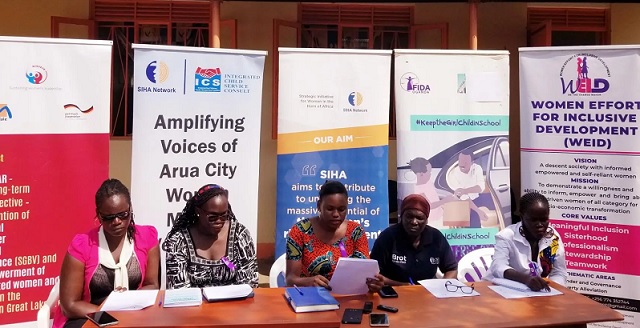
A recent Afrobarometer survey shows shifting attitudes among Africans regarding gender-based violence. Experts suggest a more comprehensive approach could help shift the dial further.
SPECIAL REPORT | BIRD AGENCY | Public perceptions towards gender-based violence are shifting in Africa, according to a survey by Afrobarometer, a pan-African attitudes research company.
The survey covering 39 countries in Africa, published on November 22, shows that “gender-based violence (GBV) is viewed by the majority of Africans as the most important women’s rights-related issue that their government and society need to address.”
The report underscores that 31% of respondents prioritize addressing GBV, placing it ahead of concerns like the scarcity of women in powerful positions (20%), inequalities in education (17%), and workplace disparities (16%). This shift in prioritization reflects a substantial change in societal perspectives on the continent.
Additionally, more than 69% of respondents believe it is never justified for a man to use physical force to discipline his wife. This evolving perspective marks a crucial moment in the fight against the vice that was once prevalent throughout Africa.
Africa has been making notable progress in countering gender-based violence. UNICEF data shows the prevalence of some forms of GBV, such as female genital mutilation, has declined in the past decade, from as high as 33% in 2000 to 19% today, a 14-percentage-point drop. This is despite other forms of violence, such as intimate partner violence (IPV), remaining relatively high over the years.
The survey by Afrobarometer confirms the diminishing frequency of gender-based violence. The majority of respondents (34%) indicated GBV is “not very common” in their communities. This is against the 14% that indicated the frequency to be “very common.”
Samuel Abbrey, a Ghanaian youth leader and gender equality expert, explains why GBV has been significantly prevalent in Africa. “Many cultures in the region condone violence.” He also believes power inequalities across genders have been a contributing factor.
According to Chimwemwe Kayange, a Malawian gender and human rights activist, GBV has been destructive not only at the individual level but also in the way it undermines progress and the collective journey to prosperity and equality in a broader society.
“GBV exerts a profound impact on economic development. Women, girls and even men experiencing violence find their participation in the workforce constrained,” she shares.
While strides have been made in changing attitudes, there’s a pressing need for further action, particularly in the implementation of legal measures.
The survey found that only half of those who said men are never justified in disciplining their wives believe GBV should be treated as a criminal matter. The remaining half consider it a private matter to be resolved within the family.
“Africans’ perceptions of GBV vary widely by country and demographic group, suggesting that a woman’s fundamental right to safety depends at least in part on her location and circumstances,” the researchers explain.
Perceptions of GBV as the top priority range from just 5% in Mauritania to 69% in Cabo Verde.
Already, an assessment of the legal reforms on GBV shows heightened intentionality among countries on the continent that have enacted laws criminalizing GBV.
However, even though the African Union reports that 44 countries have ratified the Maputo Protocol, committing to combat violence against women, stigmatization among victims remains a major problem.
“More than half (52%) of respondents say it is “somewhat likely” or “very likely” that victims of GBV will be criticized, harassed, or shamed by others in the community if they report to the police,” the report reads in part.
Reporting GBV is key. The survey found that most citizens (81%) consider it “somewhat likely” or “very likely” that the police will take cases of GBV seriously. According to Kayange, stakeholders, including governments, civil society organizations and individuals, should push for change through education, legal reforms and awareness campaigns to ensure a lasting societal impact.
“The time to dismantle the barriers of gender-based violence is now, and it is everyone’s responsibility to respond to the call and act accordingly,” she said.
****
SOURCE: Bonface Orucho, bird story agency
 The Independent Uganda: You get the Truth we Pay the Price
The Independent Uganda: You get the Truth we Pay the Price


